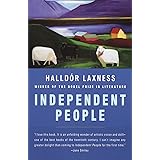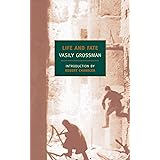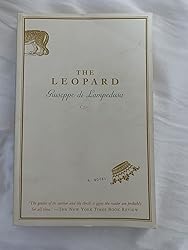
Download the free Kindle app and start reading Kindle books instantly on your smartphone, tablet, or computer - no Kindle device required.
Read instantly on your browser with Kindle for Web.
Using your mobile phone camera - scan the code below and download the Kindle app.

OK
 Audible sample Sample
Audible sample Sample 


The Leopard: Revised and with new material Paperback – International Edition, October 2, 2007
Purchase options and add-ons
In the spring of 1860, Fabrizio, the charismatic Prince of Salina, still rules over thousands of acres and hundreds of people, including his own numerous family, in mingled splendour and squalor. Then comes Garibaldi's landing in Sicily and the Prince must decide whether to resist the forces of change or come to terms with them.
- Print length224 pages
- LanguageEnglish
- PublisherVintage Classics
- Publication dateOctober 2, 2007
- Dimensions5.07 x 0.68 x 7.76 inches
- ISBN-109780099512158
- ISBN-13978-0099512158
"Layla" by Colleen Hoover for $7.19
From #1 New York Times bestselling author Colleen Hoover comes a novel that explores life after tragedy and the enduring spirit of love. | Learn more
Frequently bought together

Similar items that may deliver to you quickly
Editorial Reviews
About the Author
Product details
- ASIN : 0099512157
- Publisher : Vintage Classics; First Edition (October 2, 2007)
- Language : English
- Paperback : 224 pages
- ISBN-10 : 9780099512158
- ISBN-13 : 978-0099512158
- Item Weight : 6.7 ounces
- Dimensions : 5.07 x 0.68 x 7.76 inches
- Best Sellers Rank: #494,576 in Books (See Top 100 in Books)
- #12,886 in Classic Literature & Fiction
- #39,051 in Historical Fiction (Books)
- Customer Reviews:
About the authors

Discover more of the author’s books, see similar authors, read author blogs and more

Discover more of the author’s books, see similar authors, read author blogs and more

Discover more of the author’s books, see similar authors, read author blogs and more
Customer reviews
Customer Reviews, including Product Star Ratings help customers to learn more about the product and decide whether it is the right product for them.
To calculate the overall star rating and percentage breakdown by star, we don’t use a simple average. Instead, our system considers things like how recent a review is and if the reviewer bought the item on Amazon. It also analyzed reviews to verify trustworthiness.
Learn more how customers reviews work on AmazonReviews with images
-
Top reviews
Top reviews from the United States
There was a problem filtering reviews right now. Please try again later.
There are much worse ways to spend a year of your life than by becoming a diligent student of the Mediterranean. You would want to read deeply in Homer’s “Iliad” and Virgil’s “Aeneid” if you have a taste for antiquity; perhaps Suetonius’ “Twelve Caesaras” if you want a rollicking but trashy and contemporary history. And you would read Paul Theroux if your taste runs more to modernity, and “The Alexandrian Quartet” of Durell, the (relatively) modern Greek poems of Cavafy, Paul Bowles for North Africa, and so on. For Southern Italy, Levis’ “Christ Stopped at Eboli”, and for Sicily, certainly Di Lampedusa’s “Leopard”.
“The Leopard’s” cast of characters is rich and legendary. Don Fabrizio, the Prince of Salina, is an autocratic and blustery voluptuary, but he is also a dreamer and an accomplished astronomer whose world of wealth and privilege he can see coming to an end in the modern times. He is impossibly haughty but also surprisingly tender and sentimental. Father Pirrone is devout and precise, an unyielding advocate for the Church and its teachings and privileges, who is regularly humiliated by the Prince in having to accompany him to Palermo on adulterous business. Tancredi is the adopted ward and favorite of the Prince, who prefers him to his biological children; he is a hopeless romantic and an enthusiast for revolution and for sweeping away altogether the old order that feeds and shelters him. Princess Stella, the wife of the Prince, is brittle, long-suffering, devout and devoted to her eccentric husband and her rather vapid children. Paolo is the Prince’s son and heir, and is naturally and painfully jealous of his father’s preferment of Paolo.
The voluptuousness, the richness of life, the fantastic ease of corruption and vice, the sensuousness of the food, the sea, the beautiful landscape and even the overwhelming an enervating heat of the Mediterranean sun, all combine to brew an astonishing human stew. It has been regularly and brilliantly written about by novelists and poets – see especially Cavafy, Bowles and Durrell, mentioned above. This book describes the end of the Italian feudal era, beginning with the Italian Resorgimento in the late 19th Century. The warrior Garibaldi and his Red Shirts sweep southward through the Italian peninsula and finally land in Sicily. Chaos ensues, and Palermo falls. The Prince and his family retreat to his country estate in the hills, where they are protected by Tancredi’s revolutionist connections. The Prince’s daughter Concetta loves Tancredi, but he is smitten by the ravishing and wealthy Angelica, so Concetta is furious. The plot begins to play like a Verdi opera, but with wonderfully sly humor, always dry and shrewd, and staying well away from melodrama.
The novel borrows from the historical drama of Stendahl and the emotionalism of Flaubert, and gives them a modern Italian gloss of irony and humor. It was written in in the middle of the last century, after the Second World War, and published just after the author’s death; it was his only book. But just listen to this wonderfully evocative prose, describing for example the Sicilian dawn: “Venus still glimmered, a peeled grape, damp and transparent, but you could already hear the rumple of the solar chariot climbing the last slope below the horizon; soon they would meet the first flocks moving toward them torpid as tides…” Two passages merit special attention. The first is in chapter 5, two-thirds of the way through the book, where Father Pirrone delivers a surprisingly brilliant monologue and goes on to defuse an alarming family bombshell with great finesse. The second is chapter 7, “The Death of a Prince”, which wonderfully and with humane sympathy tells of Don Fabrizio’s final hours.
This is not only a great novel but an important work of literature and is worthy of a larger audience of serious readers.
Giuseppe di Lampedusa, a prince in his own right, wrote this book when he was well into his fifties; he had survived World War II, and was now facing similar changes in Italy as the Don Fabrizio faced in Sicily. The story, at times, is actually a pretty brutal read. My familiarity of Italian politics and history is quite little, I’m sad to say, but it never really detracts from the pretty sweeping thrill of political change and revolution. The prince who is seeing his power and class weaken by the day in 1860’s Italy, is desperate to continue his decadent life of luxury that is believed to be God-given. His appetites are the epitome of 19th century aristocracy with his sexual escapes and monstrous mansions, but he is soon brought face-to-face with the new face of the republic. Don Calogero represents the upstart middle-class filth that is quickly ascending up Italy’s social ladder, and he sees fit to have his beautiful daughter, Angelica marry Prince Fabrizio’s penniless nephew Tancredi. This is disastrous for the Prince to imagine, but it helps his family and his place in changing shape of Italian society.
The book keeps a steady pace about daily life and desires, and does a terrific job with bringing certain elements like the garden and church to the reader’s forefront. The problem with the book, to me, is that it has a tendency to go to deep into mundane daily rituals; for every breathtaking scene of political intrigue and suspense, there are too many scenes of the Prince reminiscing about old sexual flames and lost virility. Also there is the problem of taking the liberty that the majority of people have at least a working knowledge of Italian politics. I mean, the book refers constantly to Garibaldi and his revolution, but never explains who the heck this guy is. These issues never completely destroy the flow of the book, however, but they do enough to make it seem really dry in certain stretches.
I recommend this book to anyone who is interested in the mystique and change of the 19th century, or also to anyone who has affection for Italian unification stories. I for one found some of the political stories to be quite intriguing, and can speak highly of the quality of the book’s detail.
The story line follows the ending days of a Sicilian "Don" and his time period during the onsalught of the "Italian unification" (Risorgimento)which was basically forced upon the Sicilians by Garabaldi in the 1860's.
The authors descriptions of the lifestyles of those, rich and poor was extremely descriptive, and of course interesting. However, somewhere along the line, my interest in the story faded like the world around Don Fabrizio.
The story of Don Vito Corleone in the "Godfather" seems to paralell the same basic familial structure of wife, daughters, and sons (however,not in the Gangster sense).
Don Fabrizio eventually realizes that the times are quickly changing as is his power, and yet...there is nothing to do but accept it.
Perhaps, I am not Sicilian enough to have appreciated the true message and story line quality of this book, but, "The Leopard" just seemed to loose it's spots for me.















